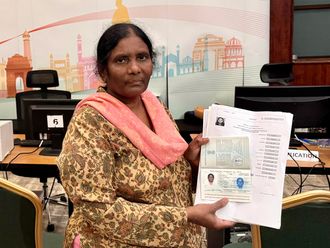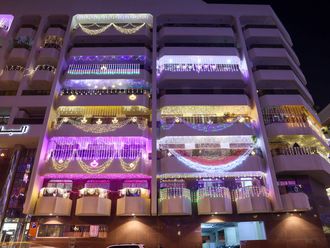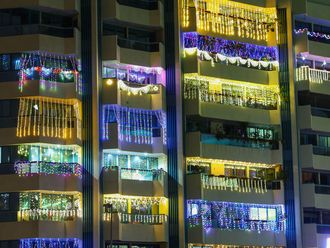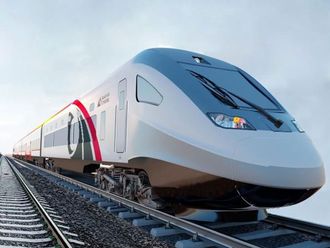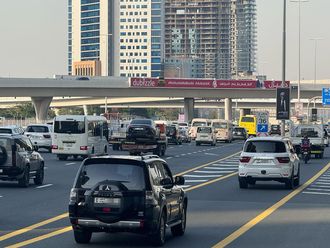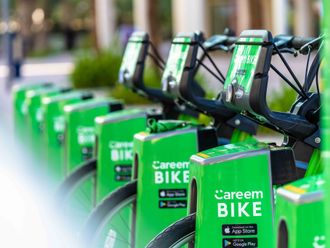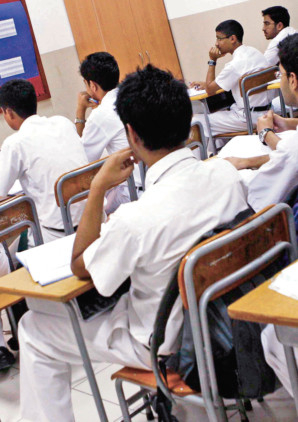
Dubai: Education is a major expense in the UAE with one in five families spending more than 30 per cent of their monthly household budget on school fees, a new school survey has revealed.
The Education UAE Survey was conducted in March-April by WhichSchoolAdvisor.com, a dedicated school guide for the UAE.
It targeted expat parents through mailers to collect independent opinion on various schools, their performance, value for money and related heads. A total of 596 households responded — 46 per cent from Abu Dhabi, 43 per cent from Dubai, nine per cent from Sharjah and the rest from Al Ain and Ajman.
WhichSchoolAdvisor.com cofounder James Mullan told XPRESS: “Our survey has revealed that 46 per cent of parents in Abu Dhabi pay 21 per cent or more of their household income on their children’s school fees, as opposed to 36 per cent of households in Dubai. Overall, close to one in five families spends over 30 per cent of their monthly household budget on school fees. The most common answer from respondents is between 11 and 15 per cent of their combined incomes.”
Several factors determine the exact percentage, he said. “The school curriculum seems to make a big difference. There is a significantly higher percentage of parents of children going to Indian curriculum schools who spend less than five per cent of their household incomes (24 per cent) than parents sending their children to IB (11 per cent), British (12 per cent) or American (13 per cent) schools. Indian schools are, of course, cheaper than IB or British schools and cater to an audience with wider income differentials. Middle class Indians having a good income will be better off than parents earning similar incomes but sending their children to British, American or International curriculum-based schools,” said Mullan.
“If you take the next price range — between five and 10 per cent of household income — Indian curriculum families emerge even further ahead. Eighteen per cent of Indian curricula families pay this level of fees, as opposed to six per cent of American curricula families, 13 per cent of British curricula families and 18 per cent of IB-based families. Combined, the results for families spending 10 per cent or less of their household income on education would be Indian curriculum schools: 42 per cent, IB 28 per cent, British 25 per cent and American curriculum schools 19 per cent.”
Mullan said the survey is significant as it “has a large representative sample and covers all major curricula and population centres. It is a compelling snapshot of the education sector in the UAE.”
Dispelling “expat packages” as a myth, the survey showed that 62 per cent of respondents got no help at all from their companies, 24 per cent some contribution and just a lucky few — 13 per cent — got their school fees covered. “If you are employed in Abu Dhabi, you have a better chance,” said Mullan. “Interestingly, having your fees paid by your company makes you see a school in a different light. Sixty eight per cent of such respondents would recommend their child’s school, a figure that drops to 58 per cent for parents paying the fees themselves.”
But do the fees represent good value for money?
“Given how much noise is made over school fees, we expected a low percentage of parents to say it represented good value for money. In actual fact, responses were evenly divided between ‘Agree’ (33 per cent), ‘Partially agree’ (37 per cent) and ‘Disagree’ (30 per cent). Parents are more rational and objective than they are given credit for,” said Mullan.
The survey also found teachers’ qualifications are the most important criteria in choosing a school, followed by choice of curricula. While six out of 10 parents said they would recommend their child’s school to others, 53 per cent admitted they have, at some point, thought about changing schools. This is evident at the primary level. Almost half (49 per cent) of respondents did not see any change in the education landscape with new schools taking up the increasing demand for places.
School Inspection Results Out
Twelve schools in Dubai have been were rated ‘outstanding’ in the latest round of inspections conducted by the Dubai School Inspection Bureau. The 2012-13 report card , announced by the Knowledge and Human Development Authority on April 29, showed that nine of these schools were UK-curriculum schools, two Indian and one US- curriculum based.
Of the 143 schools inspected between October 2012 and April 2013, 51 schools have been rated ‘good’ and 67 schools were graded ‘acceptable’.
The outstanding schools include Kings Dubai, GEMS Wellington International School, Jumeirah College, Jumeirah English Speaking School, Dubai College, GEMS Jumeirah Primary School, Jumeirah English Speaking School - Arabian Ranches, GEMS Dubai American Academy, Dubai Modern High School, The Indian High School, Dubai English Speaking College and Horizon School.


